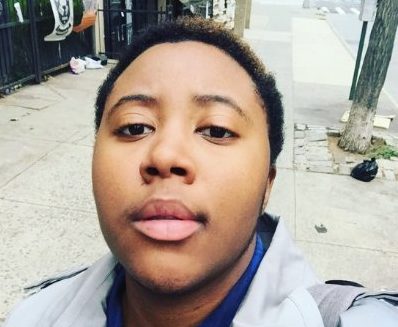Trans journalist reveals why his bottom surgery, which may be cancelled due to coronavirus, is lifesaving

Journalist Mr. Tatyana Bellamy Walker is worried his bottom surgery will be cancelled because of coronavirus. (Twitter/bell_tati)
Trans and non-binary people are seeing gender-affirming surgeries, like bottom surgery, cancelled because of coronavirus.
As hospitals prepare for an influx of COVID-19 patients, trans and non-binary healthcare has been deemed “non-essential”.
Now, a male, non-binary Business Insider journalist, who is awaiting scheduled gender-affirmation surgery, has spoken out about why his surgery isn’t optional – it’s lifesaving.
Tatyana Bellamy-Walker said he’s waited almost a year to have bottom surgery, and now he’s afraid it will be cancelled because of the growing coronavirus pandemic.
Based in New York, where governor Andrew Cuomo has ordered all elective surgeries to be cancelled, Bellamy-Walker said he doesn’t think people understand how lifesaving gender-affirming surgeries are for trans and non-binary people.
“For many people, when they hear ‘elective surgery’ they assume cosmetic surgeries,” Bellamy-Walker wrote.
“My gender-affirming surgery is considered ‘elective’. However, if my surgery is postponed, it will have a severe impact on my mental and physical health,” he added.
Trans people who undergo surgical transition are much less likely to need mental-health services.
In November 2019, a study that is believed to be the first analysis of the long-term effect of hormone therapy and gender-affirming surgery on trans people’s mental health was published in medical journal American Journal of Psychiatry.
Researchers at Yale University used 10 years of medical data for the entire population of Sweden, and concluded that trans people who undergo gender-affirming surgery are significantly less likely to seek mental-health treatment than trans people who don’t access gender-affirming surgery.
When Bellamy-Walker went to one of the few transgender health centres in New York to get a letter from a psychiatrist, which was the last step in getting his surgery approved by Medicaid, he found the centre shut.
“A staff member at the health center warned me that because of the outbreak my surgery could be postponed,” he said, adding that he’s already had to jump through multiple hoops to get this far in the process and have a surgery date – which is currently set for July.
“I am scheduled to have bottom surgery or metoidioplasty in July 2020, but because of the delay in elective procedures, it’s likely that my pre-op appointment and surgery will be rescheduled,” he said.
“In August of 2018, a doctor officially diagnosed me with gender dysphoria, the debilitating distress I feel because of a disconnect between my brain and how the world perceives my body. Since then, I’ve received treatment through hormone replacement therapy or injecting my stomach every week with testosterone. This has relieved a lot of my symptoms, such as depression and anxiety.
“It’s only recently that I’ve started to be read as male in public (for example, grocery store cashiers calling me sir, people on the street calling me brother and guy). While this is a relief, it’s also scary. I avoid public gyms because I fear the potential violence and stigma I’ll face in the men’s locker.
“Receiving this surgery as soon as possible will allow me to avoid potential violence and live my life safely.”
Bellamy-Walker’s documents all carry male gender markers, including his driver’s license, social security records and birth certificate.
He’s even registered with the US Selective Service System, a military draft system for all men under the age of 26, despite US President Donald Trump’s ban on transgender people serving in the military.
Bottom surgery is, for Bellamy-Walker, the last step in a transition that has already taken several years.
“Yet, somehow, the pandemic is becoming my latest obstacle to participating in public life,” he said.

